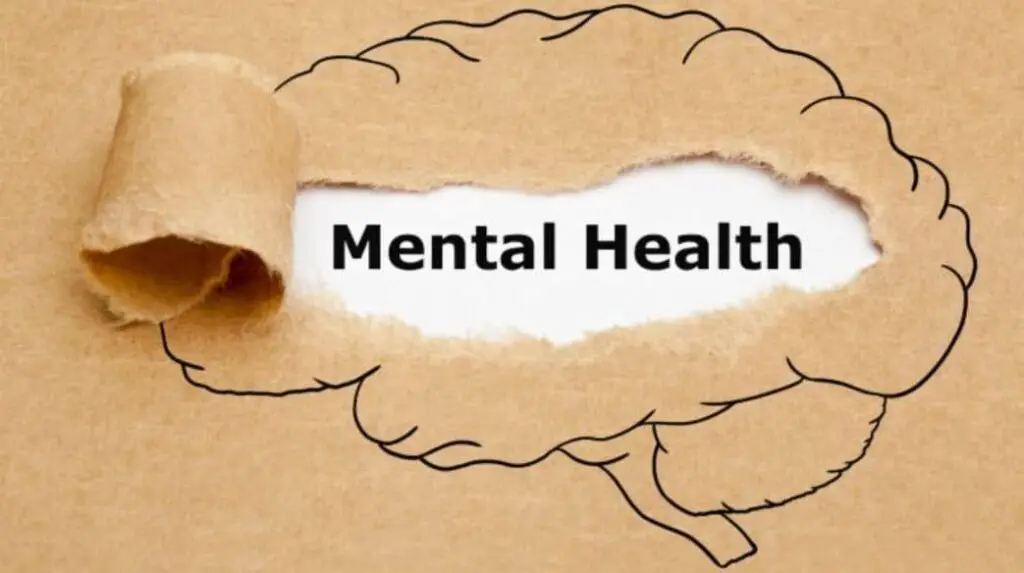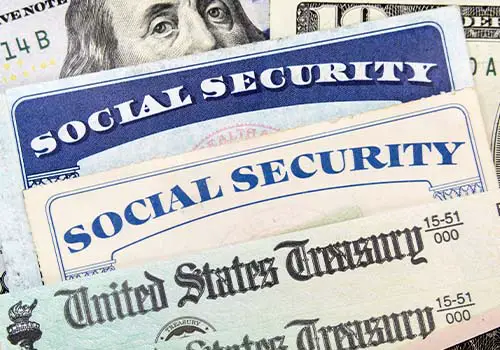More and more people are struggling with mental health issues today, and many need to take a break from work to improve. Many employees are covered by short-term disability insurance through their employer. This insurance helps to provide financial payments when you cannot work due to a short disability or medical condition.
So, can you use your short-term disability benefits to cover time off due to a mental illness? The answer depends on a few different factors.
Keep reading as we tell you everything you need to know about using short-term disability for a mental health condition.
What Is Short-Term Disability Insurance?
Short-term disability insurance is a type of insurance that replaces part of your income in the event you are unable to work due to a disability. These types of policies are managed by private insurance companies, and each company sets its own rules when it comes to the definition of a disability.
Most short-term disability policies also have specific exclusions that prevent you from collecting disability benefits if your disability claim is related to a specific action or condition.
For example, most policies exclude pre-existing conditions. This usually means that you cannot get approved for benefits due to a condition for which you were already receiving treatment within six months prior to the start of your policy.
Short-term disability benefits are meant to be short in duration. In most cases, short-term benefits will pay you for a maximum of six months. If your disability persists longer than that, you will generally need to switch over to long-term disability benefits.
Most policies will pay benefits equal to 70% to 100% of your regular income. Whether or not your short-term disability benefits are taxable generally depends on how the premiums were paid.
Lastly, short-term policies have a fairly short waiting period. In most cases, the waiting period is about two weeks. This means that your disability will need to last at least two weeks before you can begin to receive benefits.
Do Short-Term Disability Benefits Cover Mental Health?
Most people who have short-term disability coverage are enrolled in a group plan through their employer. Unfortunately, most short-term disability plans specifically exclude mental health conditions.
This means that you will not receive any short-term disability insurance benefits for time off due to chronic mental health conditions like anxiety disorder or bipolar disorder. The language in most policies excludes both mental and emotional disorders, and exclusions are one of the biggest reasons why short-term disability claims can be denied.
Most acute mental disorders are also excluded. So, a panic attack or situational stress will generally not qualify you for a successful short-term disability claim.
There are a couple of ways that you might be able to get benefits for mental health.
1) Look beyond your group policy. Find a private policy that covers these conditions, and purchase that type of policy on your own.
2) If your mental condition is a direct result of a physical injury, you will likely be able to get it covered. For instance, suppose you were in a car accident that caused numerous injuries and left you depressed because you could no longer participate in your normal activities. Since your depression is a direct result of your injuries, it is much more likely to get approved for disability than a standalone depression diagnosis.
KEY TAKEAWAYS
- Most short-term and long-term disability plans exclude mental health conditions from their plans, making it difficult to get any benefits for mental conditions.
- If your mental health conditions are a side effect of another physical injury (such as a car accident) than you are more likely to be approved for disability based on a combination of the two conditions.
- Short-term disability benefits typically only last for six months.
Getting Long-Term Disability For Mental Health
Unfortunately, most long-term disability insurance plans have the same mental health exclusion as many short-term plans. Your eligibility to receive long-term disability benefits for mental health will be subject to the definition of a disability in your plan plus any specific exclusions that might be included.
If your insurance policy specifically excludes mental health disabilities, then you must have some other qualifying condition to get approved for benefits. You should refer to your plan documents for specifics on what is and is not covered under your plan.
Similar to the short-term insurance plans mentioned above, long-term plans will usually not deny you coverage if your mental health issue is a direct result of a physical injury. Consider the car accident example from above. If you are left with injuries and chronic pain that cause anxiety and depression, then your long-term disability claim is not likely to be denied based on the mental health exclusion.
More than likely, the mental health issues coupled with the physical injury aspect will be enough to get your long-term disability claim approved.
Must read articles related to Disability
- A complete guide on “How to Apply for Disability“.
- Learn more about what conditions qualify for disability.
- Check out the Common Reasons Why Short-Term Disability Can Be Denied.
- Learn more about how to win SSDI appeal.
- You may be entitled to SSDI back payments…read “How to track my disability back pay“.
Other Disability Options For Mental Illness
Mental health issues are getting more exposure from healthcare professionals, and they are emphasizing the importance of getting help and treatment for these conditions. Especially with the recent pandemic, there has been a surge in mental health issues across America. So, since many disability insurance plans do not cover these conditions, what other options do you have? Here are a few options you can consider.
Americans With Disabilities Act (ADA)
The Americans with Disabilities Act provides many protections for people with disabilities. This can include mental health conditions as well. Part of the protection means that you cannot be discriminated against at work due to your condition, and you are also entitled to certain “reasonable accommodations” when performing your job. These accommodations could be anything from an extra mental health day to getting reassigned to a boss who is more compassionate. You might be required to submit medical evidence of your condition to qualify for these accommodations, but using the protection of the ADA can be a great way to make your life a little easier when dealing with your mental health issues.
Family and Medical Leave Act (FMLA)
The Family and Medical Leave Act provides employment protection for those individuals who need to take time off work due to a medical condition or to care for a family member with a specific medical condition. This law protects your employment while you take up to 12 weeks off work. You must provide evidence of your condition through medical records, although there is no mental health exclusion when it comes to FMLA. The biggest drawback of FMLA is that the time you take off from work is not paid time off. Most people cannot take 12 weeks off work without pay, so they are unable to use their FMLA time. However, this can be an option if you need time off as a result of a mental health issue.
Workers’ Compensation
Workers’ compensation helps cover your medical expenses and loss of wages due to an on-the-job injury. While this is not typical of mental health conditions, employees can sometimes suffer from those conditions on the job. Consider first responders, who are exposed to trauma and extremely stressful situations in their job. If a situation at your job has caused a mental health episode, then you might be able to get workers’ compensation benefits to help you. These benefits vary from state to state, so the best option is to contact the workers’ compensation office in your state to determine your options.
Social Security Disability
Even though many private insurance companies exclude mental health conditions from coverage, the Social Security Administration will approve disability benefits for many mental health conditions. In fact, the SSA Blue Book has an entire section of disability impairment listings devoted to mental health. To qualify for Social Security disability insurance (SSDI), you need a sufficient number of work credits. Your condition should also have prevented you from working for at least 12 months or be expected to last at least 12 months. Getting approved for SSDI benefits can be a lengthy process, and you might need to hire a disability attorney to help you through the appeals process. However, if your mental condition truly prevents you from working, this is a great way to receive disability benefits for your impairment.
Documentation Required For Your Mental Health Disability Claim

Whether you are getting a health insurance claim approved or attempting to get approved for disability benefits, you must submit documentation to support your claim.
So, what types of documentation are required when it comes to mental illness? The answer is that there is not much difference between a mental health claim and any other claim.
- Make sure that you are seeking medical treatment for your mental health condition.
- If you claim benefits for a mental health disorder but have not sought medical treatment and do not have a treatment plan in place, your claim will not likely be approved.
You will need to show the same types of evidence to support your mental health disability claim as you would for a physical injury..
- You should be able to show medical records and doctor’s notes that prove your condition.
- If you have any records from a vocational expert that help prove your inability to work with your condition, that would also be great evidence.
The more medical evidence that you can provide, the more likely your claim will be approved.
If you have any questions about the disability process or how to prove your claim, most disability attorneys offer free consultations. You can speak to an attorney about your situation, and they can advise you on the best approach for getting help.
TIP
If you have a history of mental health conditions, you can search for private short-term insurance plans that specifically include mental health in their list of approved conditions and purchase that plan on top of any work plans.
Mental Health Tips For Avoiding Burnout
Not everyone can get approved for disability benefits due to mental health issues, so what are some ways that you can avoid burnout?
Here are a few tips for avoiding burnout and keeping yourself in a good mental place.
- Take Time Off From Work – focus on things that you enjoy, completely unplug from work, enjoy time with your friends and family, or enjoy time alone if that is what you prefer.
- Sleep – try to get at least 8 hours of sleep each night.
- Exercise – get out and walk for 20 minutes at least five days per week. Excercise releases chemicals in your brain that put you in a better mood.
- Check Your Diet – eating healthy foods can also help with mental health conditions, so try and make healthy choices when it comes to your eating habits.
The Bottom Line
Most employer-sponsored group short-term disability plans specifically exclude mental health conditions from coverage. Most long-term disability plans also exclude mental health.
However, you do have some other options for getting benefits as you deal with your condition. You can take advantage of SSDI benefits, FMLA time, or request a reasonable accommodation under the ADA.
At the very least, make sure you take your paid time off from work to help you avoid burnout. Taking care of yourself should be high on your priority list, including taking care of your mental health.
Frequently Asked Questions
There are only a handful of conditions that are automatically approved such as ALS, organ transplants, and very serious types of cancer.
For other conditions, you will need to either meet or equal a listing or prove vocationally that you are unable to work due to your condition.
In most cases, anxiety will not qualify you for short-term disability. While your anxiety might prevent you from working, most short-term disability plans include specific exclusions for mental or emotional disorders.
This means that even though your anxiety might be disabling, your policy will not provide benefits for that condition.
You might consider looking for a standalone policy that includes mental condition benefits.
Even though depression can be a disability, most short-term disability policies exclude coverage for mental health conditions. If your depression is a direct result of a physical injury, you might be able to get it covered.
For example, if you were in a car accident and now suffer from depression due to chronic pain, your disability claim is more likely to be approved.
Most insurance companies will not utilize the mental health exclusion when the condition is directly related to a physical injury.
There are numerous conditions that can qualify you for short-term disability.
You should refer to your insurance company’s plan documents to determine the conditions that will qualify you for benefits.
Generally, you must be unable to work for at least two weeks, and most short-term plans pay benefits for a maximum of six months. You will need sufficient medical evidence to support your claim, and your condition must not be on the list of exclusions included in your policy.
No, you cannot get short-term disability benefits for any condition for an extended period of time.
Most short-term plans have a benefit limit of six months. Your short-term disability benefits will stop at that point.
If your condition lasts longer than six months, you might be able to switch to long-term disability benefits.
Sometimes, you might even need to switch to Social Security disability benefits.
You can find a Social Security Administration office near you by using our SSA office locator and searching for your closest location.





